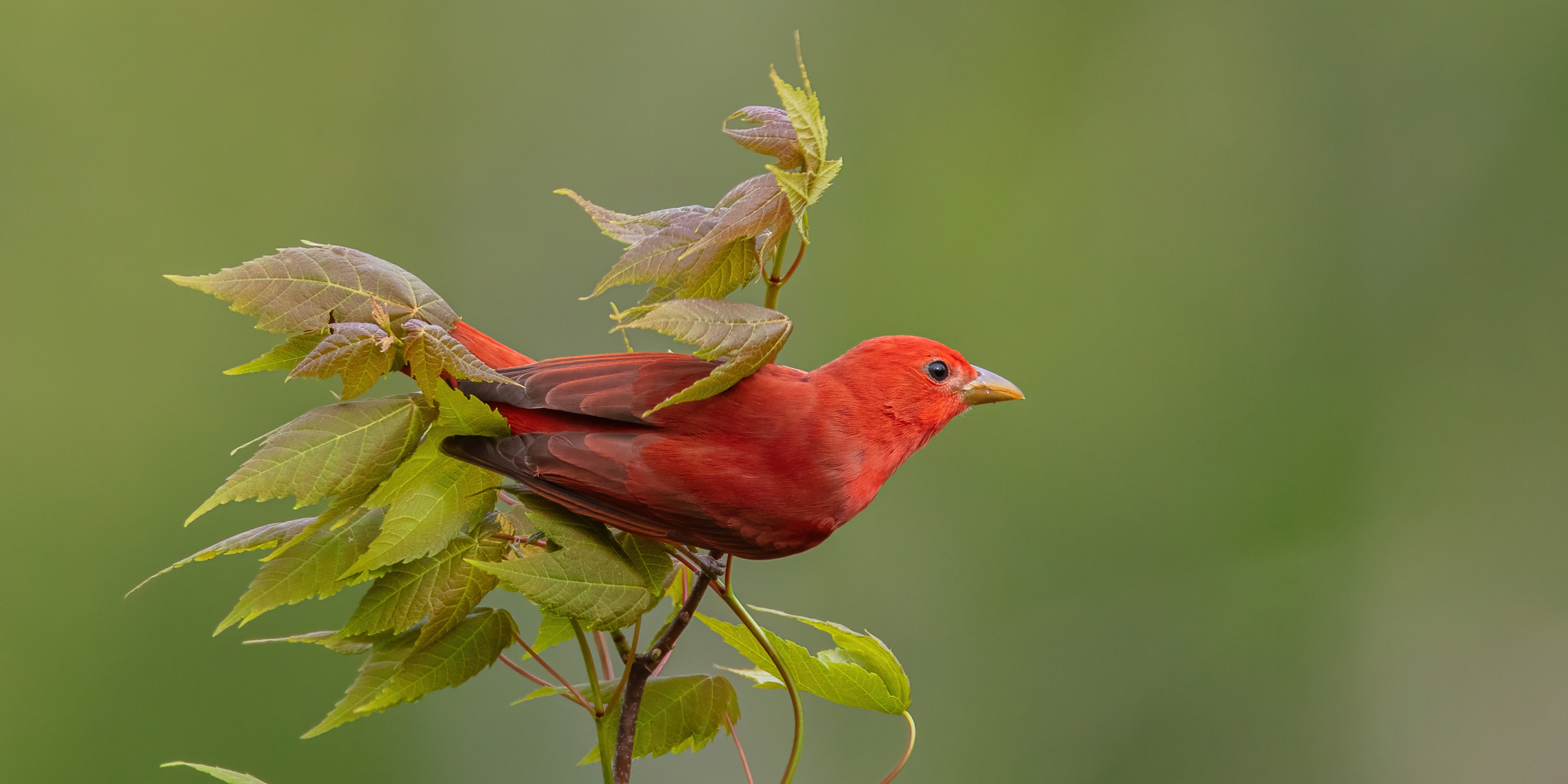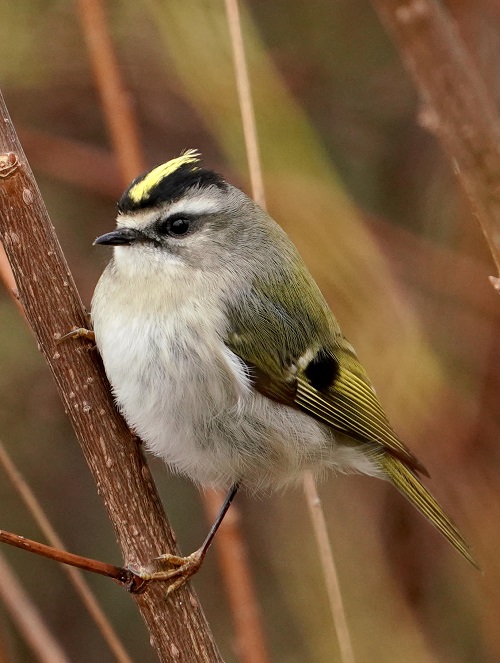The Wisconsin Society for Ornithology recognizes individuals and organizations that have made outstanding achievements in advancing bird conservation, promoting the field of ornithology and contributing to the Society. After receiving a number of worthy nominations, the Board of Directors met in January and selected the recipients of four awards to be presented at WSO’s 79th annual convention during a special ceremony on Friday, May 18, at the Green Lake Conference Center.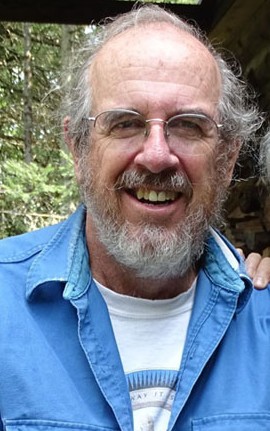
The SILVER PASSENGER PIGEON AWARD, presented to members of WSO for distinguished service to the Society, is being awarded to Peter McKeever, a Madison-area attorney who has provided legal counsel to WSO since 2014. McKeever, who has served for several years on WSO’s Conservation Committee, was cited for the tremendous body of work he did on the recent addition to WSO’s Honey Creek Nature Preserve. His legal expertise and experience with land acquisitions were critical as he guided the board through the transaction including negotiating, filing the correct paperwork, securing a purchase agreement, advising on fundraising and overseeing the closing. McKeever has been a conservation professional for many years, including 10 years as state director of The Nature Conservancy’s Wisconsin Chapter.
The BRONZE PASSENGER PIGEON AWARD is presented to individuals who have made outstanding contributions in their local communities or in the state to promote the field of ornithology. This year’s award will go jointly to Jeff Bahls and Larry Michael for their depth of work and breadth of reach at the Horicon Marsh, where they continue to influence and educate birdwatchers both near and far.
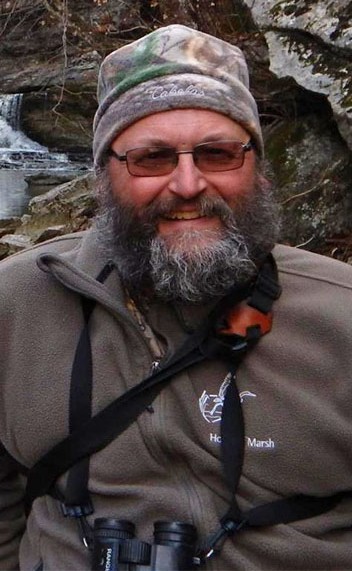 Bahls heads the board that organizes the annual Horicon Marsh Bird Festival — the first and largest such event in Wisconsin, now in its 16th year. He coordinates the hosting groups, which include the Horicon Marsh Bird Club (HMBC), Marsh Haven Nature Center, Blue Heron Tours, Horicon National Wildlife Refuge and the Horicon Marsh State Wildlife Area. Bahls is well known and loved by many of the returning participants. Bahls has served as HMBC president since the retirement of its founder, Larry Michael. He writes a monthly club newsletter, compiles three Christmas Bird Counts (CBCs), leads the HMBC Big Sit and has been a BIGBY birder. He worked for the Wisconsin Breeding Bird Atlas I and currently is helping with Atlas II, taking on many blocks that are tough to access and using his kayak to obtain crucial data in areas that not previously covered well by the atlas.
Bahls heads the board that organizes the annual Horicon Marsh Bird Festival — the first and largest such event in Wisconsin, now in its 16th year. He coordinates the hosting groups, which include the Horicon Marsh Bird Club (HMBC), Marsh Haven Nature Center, Blue Heron Tours, Horicon National Wildlife Refuge and the Horicon Marsh State Wildlife Area. Bahls is well known and loved by many of the returning participants. Bahls has served as HMBC president since the retirement of its founder, Larry Michael. He writes a monthly club newsletter, compiles three Christmas Bird Counts (CBCs), leads the HMBC Big Sit and has been a BIGBY birder. He worked for the Wisconsin Breeding Bird Atlas I and currently is helping with Atlas II, taking on many blocks that are tough to access and using his kayak to obtain crucial data in areas that not previously covered well by the atlas.
Bahls devotes much time to educating the public about birds, assists with the annual Spring Nest Box Seminar, was instrumental in setting up an Osprey platform as well as Purple Martin and Bluebird houses at the Horicon Marsh Education and Visitor Center where he works part time for the DNR. He leads multiple Natural Resources Foundation field trips every year to highlight the marsh and its birds.
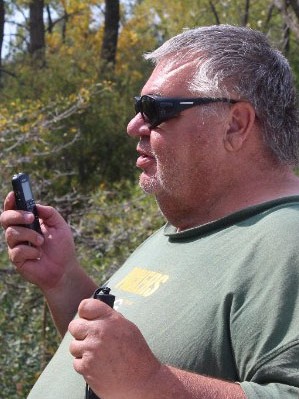 Larry Michael grew up in Horicon and remembers a lot about the bird life he observed as a child. His interest continued through the years and he soon realized this was a special place to attract people, so he approached Bill Volkert, then DNR wildlife educator there, and suggested they begin a Horicon Marsh Bird Club. Michael served as president for many years and introduced the Big Sit, various field trips and numerous educational programs. He organized and launched the bird festival in 1997. He got club members involved in CBCs, the Midwest Crane Count, the first Atlas, the Wisconsin Marsh Bird Survey and Great Lakes Owl Survey.
Larry Michael grew up in Horicon and remembers a lot about the bird life he observed as a child. His interest continued through the years and he soon realized this was a special place to attract people, so he approached Bill Volkert, then DNR wildlife educator there, and suggested they begin a Horicon Marsh Bird Club. Michael served as president for many years and introduced the Big Sit, various field trips and numerous educational programs. He organized and launched the bird festival in 1997. He got club members involved in CBCs, the Midwest Crane Count, the first Atlas, the Wisconsin Marsh Bird Survey and Great Lakes Owl Survey.
When Michael lost his eyesight, he stepped down from most birding activities. Ten years later, motivated by Ryan Brady and Matt Herzmann, he started making contributions to Breeding Bird Atlas II. With his heightened sense of hearing, he does an amazing job of birding by ear and has put in the needed nocturnal survey hours for several priority blocks. Michael has enjoyed his return to birding and is loved and well respected among members of the club.
The NOEL J.CUTRIGHT CONSERVATION AWARD recognizes outstanding contributions to bird conservation in Wisconsin. This year’s award will go to the Friends of Grant Park (FOGP), the South Milwaukee organization dedicated to preserving the natural areas of Grant Park, encouraging use of the park and providing a mechanism for private contributions to supplement public funding. Because of the group’s efforts, Grant Park, on the shore of Lake Michigan in southern Milwaukee County, has become a birding hot spot.
Noel Cutright, the late two-time president of WSO, initiated Grant Park’s spring warbler walks in 2005. The walks continue each Sunday from the end of April through the end of May. They attract birders and non-birders alike and therefore have sparked an interest in many for birding and bird conservation.
FOGP also coordinates “weed-outs”, burdock removal and park trash cleanups. It established rain gardens throughout the park using native plants and manages a bluebird trail at the Grant Park golf course. Members conduct a “Trek or Treat” to help families appreciate natural areas. FOGP members have been great partners in bird conservation and good environmental practices, contributing to South Milwaukee earning a Bird City Wisconsin designation in 2017.
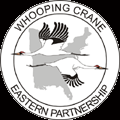 The SPECIAL RECOGNITION AWARD is given to individuals or groups who do extraordinary work on behalf of birds, but don’t fit traditional WSO award categories. This year, WSO is recognizing the remarkable work of the Whooping Crane Eastern Partnership, specifically these organizations: Operation Migration (OM), International Crane Foundation (ICF), U.S. Fish and Wildlife Service (FWS), Wisconsin Department of Natural Resources (DNR) and the USGS Patuxent Wildlife Research Center.
The SPECIAL RECOGNITION AWARD is given to individuals or groups who do extraordinary work on behalf of birds, but don’t fit traditional WSO award categories. This year, WSO is recognizing the remarkable work of the Whooping Crane Eastern Partnership, specifically these organizations: Operation Migration (OM), International Crane Foundation (ICF), U.S. Fish and Wildlife Service (FWS), Wisconsin Department of Natural Resources (DNR) and the USGS Patuxent Wildlife Research Center.
The Whooping Crane Eastern Partnership was organized in 1999 as a next step in the recovery of Whooping Cranes in North America. After a decision to restore a self-sustaining migratory flock to eastern North America, the partnership came together to coordinate the work of nine government and private organizations.
Operation Migration trained young Whooping Cranes to follow behind an ultralight aircraft, leading many groups on their first fall migration to Florida. Although the ultralight training ended in 2015, OM is still very much involved. They raise young Whooping Cranes in their pen at White River Marsh, track their locations and provide updates on their website via daily field journal entries.
International Crane Foundation biologists track cranes from previous years. The ICF website also has journal entries from the crane trackers, information on all species of cranes, and lots of pages for kids, educators, interpreters and naturalists.
The FWS is responsible for administering the Endangered Species Act and provided the legal framework for the reintroduction. The DNR maintains a comprehensive statewide management plan for the Eastern Migratory Whooping Crane Population.
